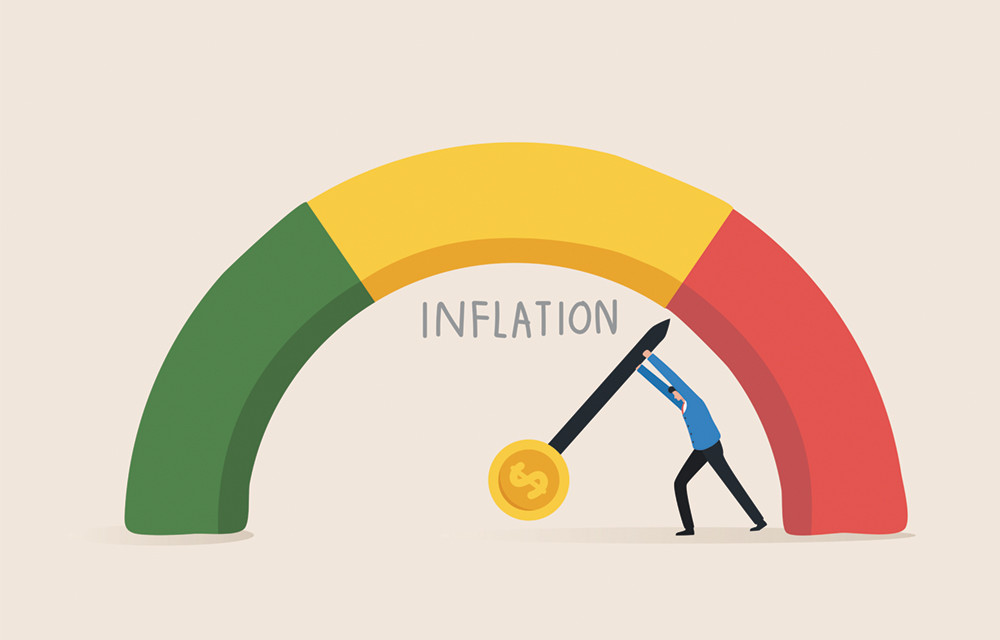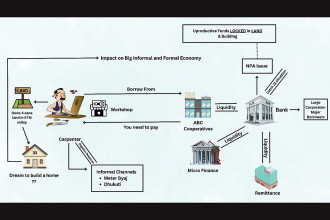
The unexpected rise in the price of goods and services in recent years have been triggered by geopolitical tensions among big economies, the incidence of pandemic, and supply disruption due to the protracted war between Ukraine and Russia. Uncertainties hovering around the continuity of supply chain has nudged countries to toe along the lines of protectionism, and imposing restrictions on export of vital goods and services.
The trade war between the United States and China since 2018 has tempered the basic rules of the global trade espoused by the World Trade Organisation (WTO). Tariff rates have been raised by the US on a wide range of Chinese goods ranging from industrial machinery and equipment, electrical and electronic products, textiles and apparels, and steel and aluminum. Likewise, the Chinese government has also imposed retaliatory tariffs on imported American goods and agricultural products like soybean, pork, beef, fruits and nuts, automobiles and chemicals. And ultimately, consumers are bound to bearing this pain.
Prices of goods and services have become exceedingly high over the last few years. Supply of a large quantity of food grains like wheat and barley and cooking oil has been obstructed due to the Ukraine-Russian war. Russia’s recent back-out from Black Sea Grain Initiatives (BSGI) has added a problem to the global supply chain as several countries in Africa and the Middle East depend upon Ukrainian supply of food grains. The rippling effect of supply blockade is being felt in other parts of the world too. Taking cognizance of the deteriorating situation of food supply, the Government of India recently decided to restrict the export of non-Basmati rice. Last year, the Indian government had imposed similar restrictions on the export of wheat in view of ensuring supply for its domestic consumers as well as considering the probable supply to its neighbouring countries. With the latest decision of banning export of coarse rice, the price of rice in Nepal will go up as India remains the major source of supply.
In the wake of decreasing domestic production and ever rising import bill, Nepal is among the South Asian countries with high-band inflation. According to the Monetary Policy 2023 published by Nepal Rastra Bank, the average inflation rate in Nepal over the last 25 years remained at 6.7% and crossed this average reaching 7.77% in fiscal year 2022-23.
Inflation in Nepal is triggered by both endogenous as well as exogenous factors. Declining agricultural and industrial production, poor stockholding of food grains, and insufficient transport network are pushing the country into the realm of food insecurity. On the other side, distribution mismanagement, cartels and syndicates of business houses, corruption and inefficiency of government agencies and regulators are adding a burden on prices of goods.
As a net food importing country, depending on neighbouring countries for its essential supplies, the price escalation in other countries is automatically transmitted into Nepal. The highest bill of import over the last several years is attributed to fossil fuel. During the last fiscal, Nepal imported petroleum products worth of Rs 352 billion and food grains worth Rs 56.6 billion. Similar is the case with fruits, vegetables and cooking oil. The upward movement in the price of these goods elsewhere impact Nepali consumers adversely.
The impact of climate change is also taking a toll in production of agriculture products on a global scale. Rise in temperatures and heat wave have been the cause of declining wheat and rice production in South Asia. Nepal has experienced excessive spells of drought, unusual and erratic rainfall, floods and landslides that are affecting not only the production of food crops but also damaging the transport infrastructure at a greater scale.
In such a scenario, controlling inflation is a challenging task for the government. The basic groundwork lies in increasing production and productivity so that people use domestic production that will have a multiplier effect in the form of saving foreign currency reserve, increased employment, and goods available at low prices in comparison to similar imported goods.
Among external factors of inflation, petroleum products are considered one of the culprits for less developed countries with no such resources. Hydropower may substitute the consumption of fossil fuel to some extent but complete substitution is not practically possible. In the current stage, demand of fossil fuels is not price elastic; hence countries are forced to pay whatever price is determined by the OPEC cartel. On the other side, the rise in price of petroleum products causes multiple impacts like rise in transportation cost, and agricultural and industrial production.
The steady devaluation of Nepali currency with the US dollar has been another factor of rising inflation. Growing demand of goods and services, met by imports is draining the foreign currency reserves on one hand while such goods are becoming costlier for Nepali consumers due to decreased value of Nepali currency.
Containing inflation requires the government to take actions on multiple fronts. First, it should focus on increasing domestic production of food grains and essential agricultural products. The agricultural sector should get due priority in the national development agenda. Transport infrastructure should be well maintained and made more efficient. Secondly, the production and use of renewable sources of energy like hydropower, solar and wind energy should be promoted to gradually substitute the use of fossil fuels. Third, logistics services in the country like transportation and warehousing services should be well regulated and fourthly, the government should promote healthy competition among entrepreneurs and businesses in order to reduce cost and improve delivery of services.
Increasing investment in innovation and production is critically important to achieve desirable output of the agriculture and industry sectors. This can be achieved only by promoting transparency, accountability and the rule of law anchored in the system of governance. Government policy should focus on creating an investment friendly ecology in the country in order to cope with the problem of growing inflation.






-1758271497.jpg)